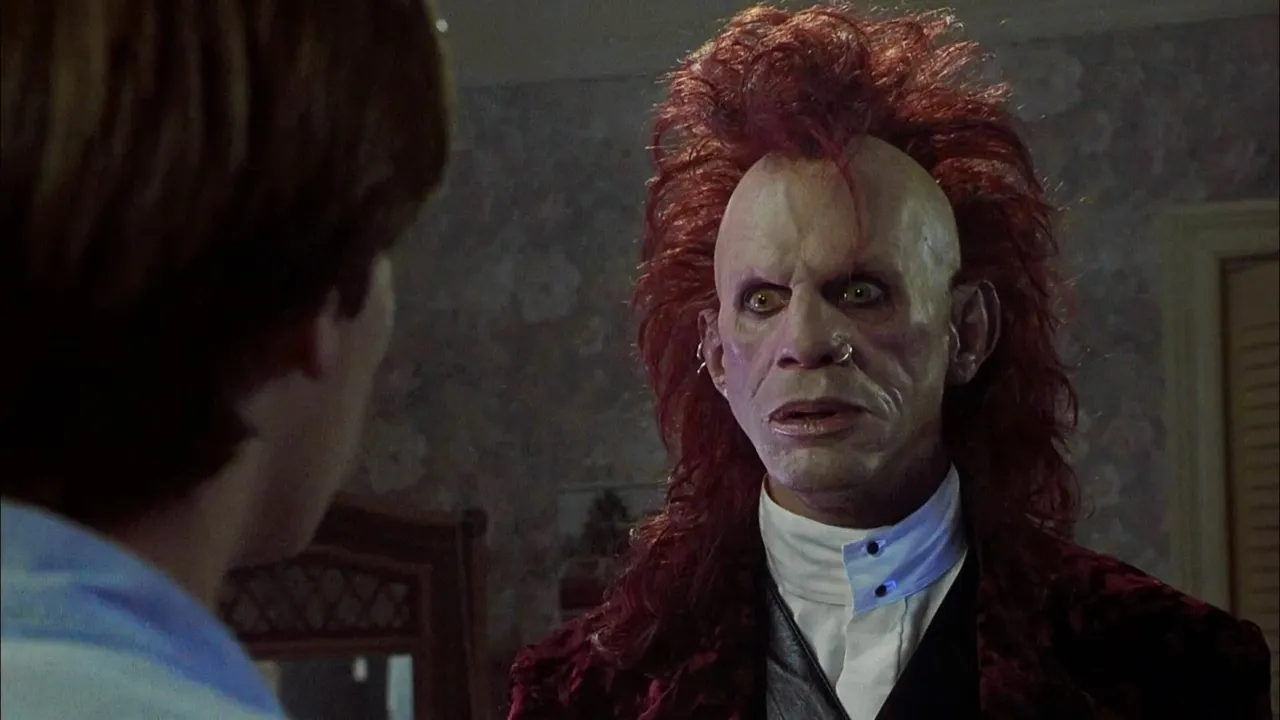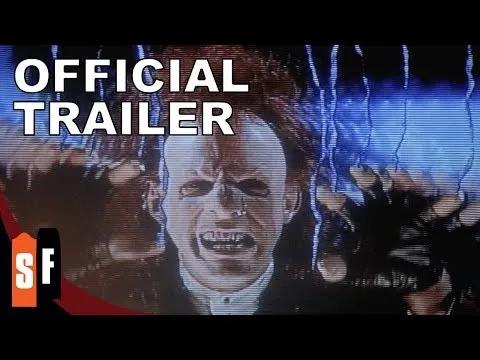
Hollywood never liked computers, especially in 1990s. In that decade it became obvious that the computer graphics technology would soon surpass classic methods of creating illusions. That meant that the teenagers would spend hours in front of computer screen enjoying some hyper-realistic and interactive fun instead of being passive recipient in darkened movie theatre. Hollywood reacted to that by making plenty of films in which computers were portrayed as the source of evil. One of such films was Brainscan, 1994 teenage horror piece directed by John Flynn.
Protagonist of the film is Michael Bower (played by Edward Furlong), lonely teenager who likes heavy metal music, horror movies and computer games. One day his friend Kyle (played by James Marsh) informs him about new computer game called "Brainscan" - the most advanced virtual reality simulation. Michael is intrigued and orders the game only to find it beyond his wildest expectations. The game is almost sickeningly realistic and the player has the task of committing vicious murder and covering the tracks. Michael plays the game and wins the first stage and later, to his ultimate horror, realises that the simulated murder was nearly identical to real life murder in the neighbourhood. Michael wants to quit the game, but virtual reality guide Trickster (played by T. Ryder Smith) comes from computer into real life and does everything in his power to make Michael continue playing game.
Script of Brainscan, written by Andrew Kevin Walker of Se7en fame, has very interesting premise and it could have been basis for something more than usual teenage horror. Unfortunately, both Walker and otherwise reliable director John Flynn missed that opportunity. The plot meanders between straight horror, dark comedy and teen angst drama. The characters, apart from Michael, are one-dimensional and some of them are either too irritating (Trickster) or complete ballast (beautiful next door neighbour in the form of Amy Hargreaves). The special effects are not anything to brag about, but they serve purpose of this film. However, the most visible mistake of filmmakers is the poor choice of music - heavy metal could have been fine for 1980s, but in 1990s the proper soundtrack for computer-related horror should have been techno. Brainscan is therefore a failure, but a failure that could be nevertheless interesting to all those who wanted to see how Hollywood viewed computer entertainment in its infancy.
RATING: 4/10 (+)
(Note: The text in its original form was posted in Usenet newsgroup rec.arts.movies.reviews on November 12th 2002)
==
Blog in Croatian https://draxblog.com
Blog in English https://draxreview.wordpress.com/
Cent profile https://beta.cent.co/@drax
Minds profile https://www.minds.com/drax_rp_nc
Uptrennd profile https://www.uptrennd.com/user/MTYzNA
Brave browser: https://brave.com/dra011
BTC donations: 1EWxiMiP6iiG9rger3NuUSd6HByaxQWafG
ETH donations: 0xB305F144323b99e6f8b1d66f5D7DE78B498C32A7
Movie URL: https://www.themoviedb.org/movie/14237-brainscan?language=en-US
Critic: AA
